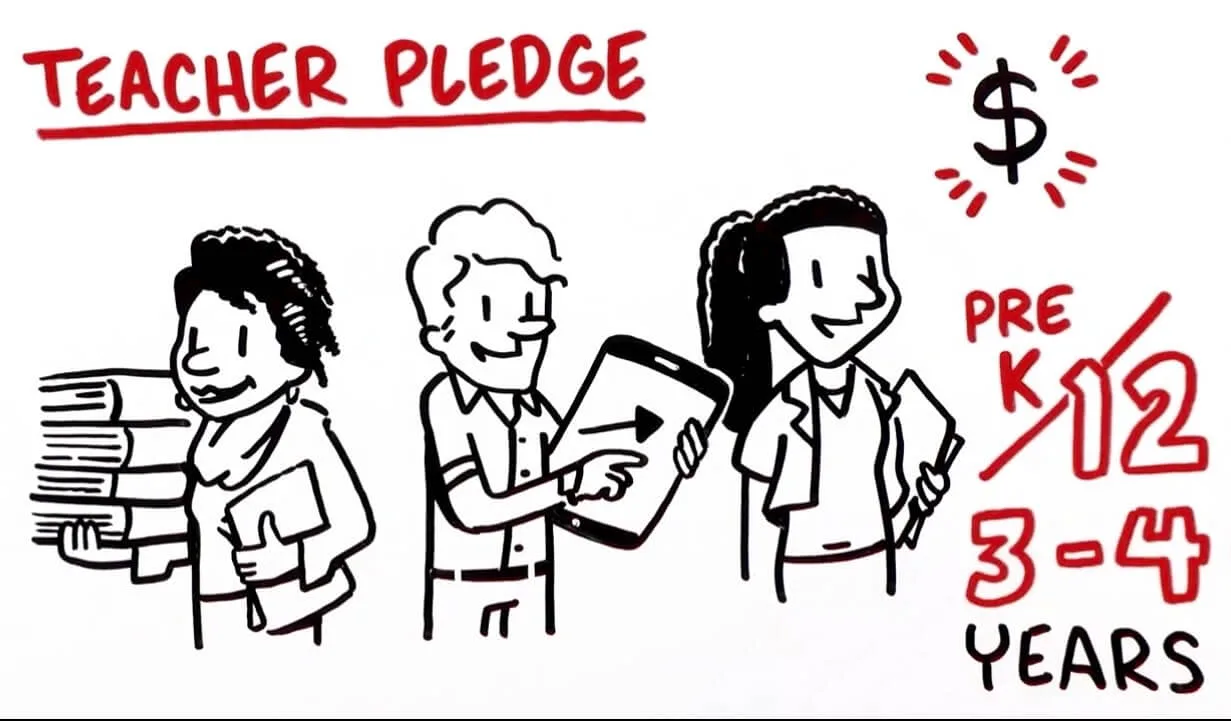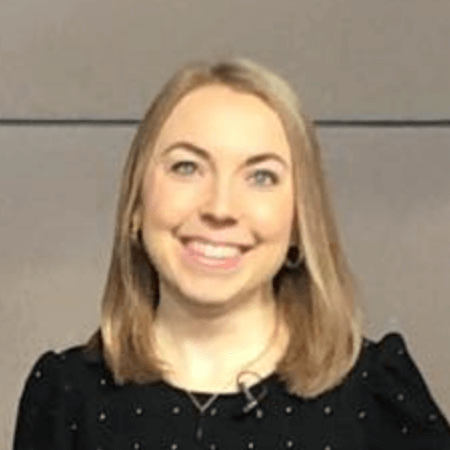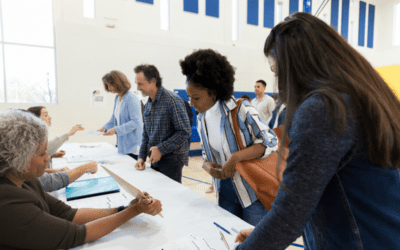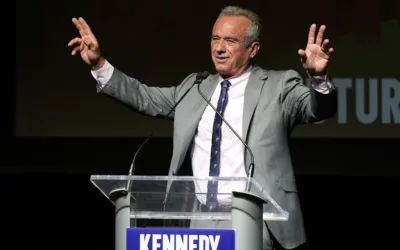
Long before the current nationwide shortage, universities had already reported a 35% drop in education majors from 2008-2018.
Arizona is letting college students teach children.
Florida schools are recruiting veterans with 48 hours of active duty experience to fill empty roles.
Several Michigan districts are offering $10,000 sign-on bonuses.
Teacher shortages had been on the rise for a decade, but the pandemic pushed many schools past their breaking point. Wisconsin is no exception, but the state’s flagship university is now offering a solution– “Teacher Pledge.”
How It Works
Launched in the summer of 2020, the “Teacher Pledge” program offers financial support to future University of Wisconsin teachers.
The UW-Madison School of Education will pay the equivalent of in-state tuition and fees, testing, and licensing costs for all students who, in return, pledge to work at a Wisconsin school—pre-kindergarten to 12th grade—for three to four years after graduation.
“Teacher Pledge” has now been extended through at least the end of the 2025-26 school year.
How Long It Takes
Students who go on to teach in high-need districts or high-need disciplines will finish the program in three years, while all others will complete it in four.
“High-need” subjects change annually, but currently include bilingual education, special education, math, and reading. “High-need” schools also change, and are defined by the US Department of Education Office of Federal Aid.

Why It’s Important
Every state in the country is currently experiencing a teacher shortage. It was already a problem pre-pandemic, then worsened by it. Primary causes include high rates of retirements among baby-boomers, declining interest in education careers among students, and high rates of teacher turnover, according to National University.
Why It’s Working
Students currently participating in the “Teacher Pledge” program say it’s already changed their college experience, starting with college choice.
“I knew I wanted to go to a bigger university for my postgraduate education and was looking around at different programs, trying to find the best one for me,” Camryn Booms, a current master’s student in the Department of Curriculum and Instruction, told the Badger Herald.
If it weren’t for the UW’s program and financial support, Booms wouldn’t have been able to afford a Wisconsin education.
“When I found out about the Teacher Pledge, I knew Wisconsin was the best fit,” she said. Booms, who is from Michigan, would have had to pay out-of-state tuition—nearly double the price—if it weren’t for the Teacher Pledge.
“Knowing that I won’t have any debt from this program and that everything was very nicely set up is a big stress reliever,” Booms added. “I can ultimately go into the field of teaching and not have to worry about paying student loans.”
The program is also helping diversify classrooms, allowing first-generation students and those from lower-income families to earn their degrees, financial burden-free.
“Representation in the classroom has a major impact on students,“ Cataggatan, an Asian-American senior, who decided to become a teacher thanks to the positive classroom experiences she had growing up, told the Badger Herald.
“But I didn’t have that representation, so I want to be that figure for my students who are either Filipino or Asian American.”
BIPOC representation isn’t just an aesthetic necessity, but an academic asset, too. A study by the Learning Policy Institute found that, in classrooms led by BIPOC teachers, BIPOC students had higher reading and math scores, as well as graduation rates.
Click here for more information on the University of Wisconsin’s “Teacher Pledge” program.
Or here, to watch a short video.

Support Our Cause
Thank you for taking the time to read our work. Before you go, we hope you'll consider supporting our values-driven journalism, which has always strived to make clear what's really at stake for Wisconsinites and our future.
Since day one, our goal here at UpNorthNews has always been to empower people across the state with fact-based news and information. We believe that when people are armed with knowledge about what's happening in their local, state, and federal governments—including who is working on their behalf and who is actively trying to block efforts aimed at improving the daily lives of Wisconsin families—they will be inspired to become civically engaged.


This billionaire’s PAC is spreading a big lie about Tammy Baldwin, Medicare, and taxpayer savings
Restoration PAC, funded by Uline’s Richard Uihlein, twists the significance of forcing Big Pharma to negotiate for lower bulk pricing on Medicare...

New Biden rules deliver automatic cash refunds for canceled flights, ban surprise fees
In the aftermath of a canceled or delayed flight, there’s nothing less appealing than spending hours on the phone waiting to speak with an airline...

Opinion: It’s time for Congress to fight for small businesses instead of big corporations
May is National Small Business Month. Our elected leaders need to show leadership all year long. For the past 27 years I’ve been fortunate to pursue...

Biden makes 4 million more workers eligible for overtime pay
The Biden administration announced a new rule Tuesday to expand overtime pay for around 4 million lower-paid salaried employees nationwide. The...





